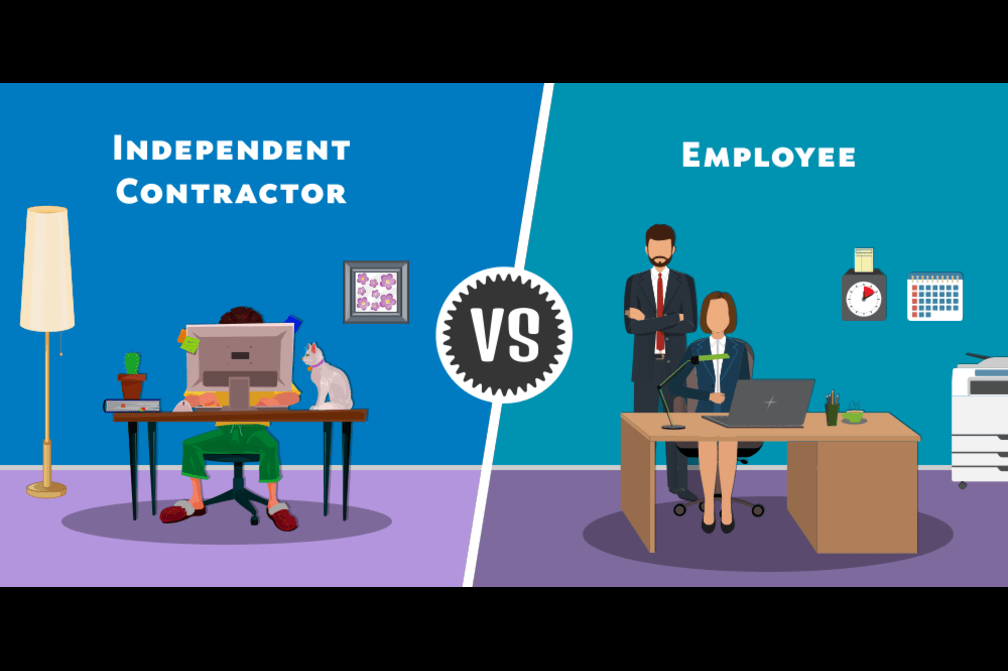W2 Employees vs. Independent Contractors

Understanding the differences between W2 employees and independent contractors is critical for both workers and employers. Misclassification can result in lost wages, denied benefits, and legal complications. While some workers enjoy the flexibility of contracting, others prefer the stability of traditional employment. However, employers sometimes misclassify workers to avoid providing benefits, overtime pay, and tax contributions.
At Gordon Law Group LLP, we help workers who have been misclassified or denied their rightful compensation. If you’re unsure about your classification, knowing your rights can protect you from wage violations, unfair taxes, and missing benefits.
What Is a W2 Employee?
- A W2 employee is a traditional worker hired by a company and subject to its policies, structure, and oversight.
- Employers are responsible for withholding income taxes, Social Security, and Medicare contributions from the employee’s paycheck.
- Workers receive benefits such as health insurance, paid time off, unemployment protection, and workers’ compensation.
- Employees are entitled to overtime pay under the Fair Labor Standards Act (FLSA) and cannot be denied wages for extra hours worked. For more details on employee benefits and tax obligations, visit the Internal Revenue Service (IRS) for worker classification guidelines.
What Is an Independent Contractor?
- Independent contractors are self-employed individuals who provide services to businesses but are not classified as employees.
- Contractors are responsible for paying their own taxes, securing health insurance, and managing their business expenses.
- Unlike employees, contractors do not receive overtime pay, workers’ compensation, or unemployment benefits.
- Contractors have greater control over their work, including choosing clients, setting schedules, and negotiating rates. For more information on independent contractor rights, visit the U.S. Department of Labor.
Key Differences Between W2 Employees and Independent Contractors
- Tax Responsibilities – Employers withhold and contribute payroll taxes for W2 employees. Independent contractors must pay self-employment taxes and file quarterly estimated payments.
- Job Stability and Benefits – W2 employees typically receive health insurance, retirement benefits, and paid time off. Contractors do not receive traditional job benefits but may earn higher hourly rates.
- Workplace Control – Employers dictate schedules, assignments, and work conditions for employees. Contractors set their own schedules and determine how their work is completed. To explore worker protections, visit the National Labor Relations Board (NLRB) for legal guidance.
Common Misclassification Issues
- Denial of Overtime and Benefits – Employers sometimes classify workers as independent contractors to avoid paying overtime, benefits, and employment taxes. If your employer controls your work schedule and duties, you may be misclassified.
- Lack of Workers’ Compensation or Unemployment Benefits – Employees qualify for workers’ compensation and unemployment insurance, while independent contractors do not. If an employer wrongly denies benefits, you may have legal grounds to challenge their classification.
- Unpaid Wages and Wrongful Termination – Employees can file wage claims if they are not paid fairly, while contractors must rely on contract enforcement. Wrongfully terminated employees may have legal protections, while contractors typically do not. For guidance on filing wage claims, visit the Equal Employment Opportunity Commission (EEOC) for workplace protections.
How to Determine if You’ve Been Misclassified
- Review Your Work Conditions – If you work full-time hours, report to a manager, and perform duties assigned by an employer, you may be a misclassified employee.
- Check Your Tax Documents – Employees receive W2 tax forms, while independent contractors receive 1099 forms for self-employment tax purposes.
- Compare Your Rights and Benefits – Employees qualify for overtime, paid leave, and job protections, while contractors do not. Misclassified workers may be entitled to back pay, benefits, and tax reimbursements.
If you suspect misclassification, consulting with an employment attorney is the best way to determine your legal options.
How Gordon Law Group LLP Can Help
- Review Your Classification Status – We evaluate employment contracts, work conditions, and tax records to determine whether you are correctly classified.
- File Wage and Tax Claims – If you were misclassified, we help you file claims for unpaid wages, back taxes, and benefits owed.
- Pursue Legal Action for Misclassification – If your employer denied benefits, overtime, or tax contributions, we will fight to recover financial compensation and legal protections.
- Protect Against Retaliation – Employers cannot retaliate against workers for filing misclassification claims. We help protect your rights.
Why Correct Classification Matters
- Ensures Fair Wages and Benefits – Misclassified workers lose out on health insurance, retirement benefits, and job protections.
- Protects Against Tax Penalties –Incorrect classification can result in IRS penalties and financial losses.
- Secures Workplace Rights – Employees deserve fair treatment, and misclassification violates labor laws. If you believe you’ve been misclassified, don’t let your employer take advantage of you.
Contact Gordon Law Group LLP Today
If you are unsure about your worker classification or believe you’ve been misclassified, you have legal rights. Gordon Law Group LLP specializes in employment misclassification cases, ensuring workers receive the wages and benefits they deserve.
Visit www.gordonllp.com to learn more about how we can help. For immediate legal assistance, call us at (617) 536-1800 or fill out our consultation form at www.gordonllp.com/contact-us/.
Know your classification, protect your wages, and stand up for your rights. Let Gordon Law Group LLP help you today.






